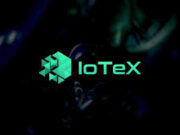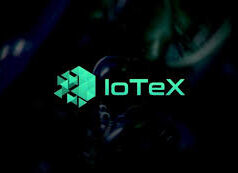The world of Bitcoin mining just got a seismic shake-up. Block, the financial technology powerhouse founded by Jack Dorsey, has unveiled Proto, the first-ever Bitcoin Application-Specific Integrated Circuit (ASIC) miner designed and manufactured in the United States. This isn’t just another piece of hardware—it’s a bold move to reshape the Bitcoin mining landscape, challenge global supply chain dynamics, and push for greater decentralization in the crypto ecosystem. Let’s dive into what makes Proto a game-changer, how it fits into Block’s broader vision, and why this launch is a big deal for the future of Bitcoin.
A New Era for American-Made Crypto Hardware
For years, the Bitcoin mining hardware market—worth an estimated $3–6 billion annually—has been dominated by Chinese manufacturers like Bitmain, MicroBT, and Canaan. These companies have held a tight grip on the production of ASIC miners, the specialized machines that power the computational heavy lifting required to secure the Bitcoin network. But Block’s Proto changes the narrative. Built entirely in the U.S. using cutting-edge 3-nanometer (3nm) technology, Proto is a flagship product designed to compete head-on with these industry giants.
The Proto chipset is at the heart of a modular mining system called the Proto Rig, engineered for durability, repairability, and efficiency. With an energy efficiency of up to 14.1 joules per terahash and a power density of 9.4 kilowatts per square foot, the Proto Rig is built to optimize large-scale mining operations. Its replaceable hashboards and open-source firmware stack make it a flexible, future-proof solution for miners looking to reduce operating costs by about 20% per upgrade cycle. This isn’t just a technical flex; it’s a strategic play to reduce reliance on foreign supply chains, especially amid growing trade tensions and tariffs that have disrupted global manufacturing.
Jack Dorsey, Block’s CEO, emphasized the importance of domestic production during the company’s Q1 2025 earnings call: “We have very close relationships with our vendors and manufacturers, and we are building in the United States.” This approach shields Proto from international trade disruptions and positions Block as a pioneer in bringing high-tech manufacturing back to American soil. For miners, this means lower supply chain risks and a competitive alternative to Asian suppliers—a move that could ripple across the industry.
Redefining Bitcoin Mining with Open-Source Innovation
What sets Proto apart isn’t just its “Made in the USA” label—it’s Block’s commitment to an open-source philosophy. Unlike traditional manufacturers that guard their designs like trade secrets, Block is making Proto’s architecture fully transparent. Developers and miners can access the chip’s design, provide feedback, and even build their own solutions on top of it. This open-source strategy is a first at scale in the mining hardware space and could democratize access to cutting-edge technology.
“This is a completely open-source initiative… allowing us to get a lot of feedback from the community and integrate improvements right away,” Dorsey said. “It’s about building an entirely new developer ecosystem around mining.” By opening the door to community-driven innovation, Block is fostering a collaborative environment where smaller mining operations and home miners can compete with industrial-scale farms. The Proto team is also developing a Mining Development Kit (MDK), currently in beta, to further empower third parties to create tailored solutions using Proto’s chips.
This focus on decentralization aligns with Block’s broader mission to make the Bitcoin network more resilient and equitable. The company’s Proto team, which also developed the Bitkey self-custody wallet, is driven by a vision to “accelerate the transition to a more open, equitable global economy.” By decentralizing access to mining tools, Block aims to reduce the concentration of power in the hands of a few large players, a concern amplified after Bitcoin’s fourth halving in April 2024, which increased centralization risks.
Core Scientific: The First Major Player on Board
Block’s Proto isn’t just a concept—it’s already gaining traction. Core Scientific, one of North America’s largest publicly traded Bitcoin mining companies, has signed on as Proto’s first major customer. The agreement, announced on July 10, 2024, will see Block supply Core Scientific with 15 exahashes per second (EH/s) of mining power, a 60% boost to the company’s existing 24.6 EH/s capacity. This deal is one of the largest ASIC agreements in terms of hashrate ever announced, signaling strong market confidence in Proto’s potential.
Core Scientific’s Chief Development Officer, Russell Cann, highlighted the partnership’s significance: “Together, Block and Core Scientific are working to define a new paradigm for scaled Bitcoin mining, one designed to deliver important operational benefits while contributing to the longevity and vitality of the Bitcoin Network.” The modular mining platform, co-designed with ePIC Blockchain Technologies, is tailored to integrate seamlessly with Core Scientific’s advanced infrastructure, prioritizing sustainability and compatibility with existing systems.
This collaboration isn’t just about raw power. The Proto Rig’s design simplifies infrastructure demands, optimizes space, and promotes the reuse of non-ASIC hardware components, making it a sustainable choice for large-scale operations. For Core Scientific, which emerged from bankruptcy earlier in 2024, this partnership is a strategic move to bolster its hashrate growth and stay competitive in an increasingly challenging market.
Why Proto’s Launch Is a Big Deal
The debut of Proto comes at a pivotal moment for Bitcoin mining. The United States has become the world’s largest Bitcoin mining hub, controlling about 37% of the global network’s computing power since China’s 2021 mining ban. Yet, most mining equipment in the U.S. still comes from Chinese manufacturers, raising concerns about foreign control over critical infrastructure. Proto’s domestic production addresses these security concerns, offering a homegrown alternative that could appeal to miners wary of supply chain vulnerabilities or potential government restrictions on foreign hardware.
Moreover, Proto’s launch is a strategic move for Block, which has faced financial headwinds. In Q1 2025, the company reported a $93.4 million unrealized loss on its Bitcoin holdings and a 15.7% year-over-year drop in Bitcoin trading revenue to $2.30 billion. With a revised 2025 gross profit growth forecast of 12% (down from 15%), Block is betting on Proto to diversify its revenue streams and strengthen its position in the crypto market. The open-source approach and partnerships like the one with Core Scientific could drive adoption and improve profitability in the second half of 2025, as Block rolls out new features to boost user retention.
The Road Ahead for Block and Proto
Looking forward, Proto’s success will hinge on its ability to deliver better performance or lower costs than established competitors like Bitmain, which recently announced plans to open its own U.S. factory by early 2026. Block’s open-source strategy and domestic manufacturing could give it an edge, particularly among miners prioritizing transparency and supply chain security. The company’s broader Bitcoin ecosystem—including Cash App’s Bitcoin trading, the Bitkey wallet, and Bitcoin payments for Square merchants—positions Proto as part of a holistic strategy to make Bitcoin a cornerstone of the global economy.
Block’s commitment to reinvesting 10% of its Bitcoin-related profits into Bitcoin purchases underscores its long-term belief in the cryptocurrency. As the Proto Rig rolls out in 2025, it could catalyze a wave of innovation, enabling new platforms, experiments, and products in the mining space. For smaller miners, home enthusiasts, and large operators alike, Proto represents a chance to participate in a more decentralized, transparent Bitcoin network.
A Step Toward a Decentralized Future
Block’s Proto isn’t just a piece of hardware—it’s a bold statement about the future of Bitcoin mining. By bringing production to the U.S., embracing open-source principles, and partnering with industry leaders like Core Scientific, Block is challenging the status quo and fostering a more inclusive mining ecosystem. As the Bitcoin network evolves in the post-halving era, Proto could be the spark that drives greater innovation, resilience, and decentralization. For miners, developers, and crypto enthusiasts, this is a moment to watch closely—Block is laying the foundation for a new chapter in Bitcoin’s story.
Sources:
- Block, Inc. Investor Relations: Block’s New Bitcoin Mining Chip to Be Part of an Ongoing Project With Core Scientific
- Brave New Coin: Proto Mining Launches American-Made Bitcoin Chips to Compete with Bitmai
- The Crypto Times: Jack Dorsey’s Block to Launch Open-Source Bitcoin Mining Chip
- Decrypt: Jack Dorsey’s Block Sells First Bitcoin Mining Chips to Core Scientific
- Blockonomi: Dorsey’s Block Partners With Bitcoin Miner Core Scientific



























